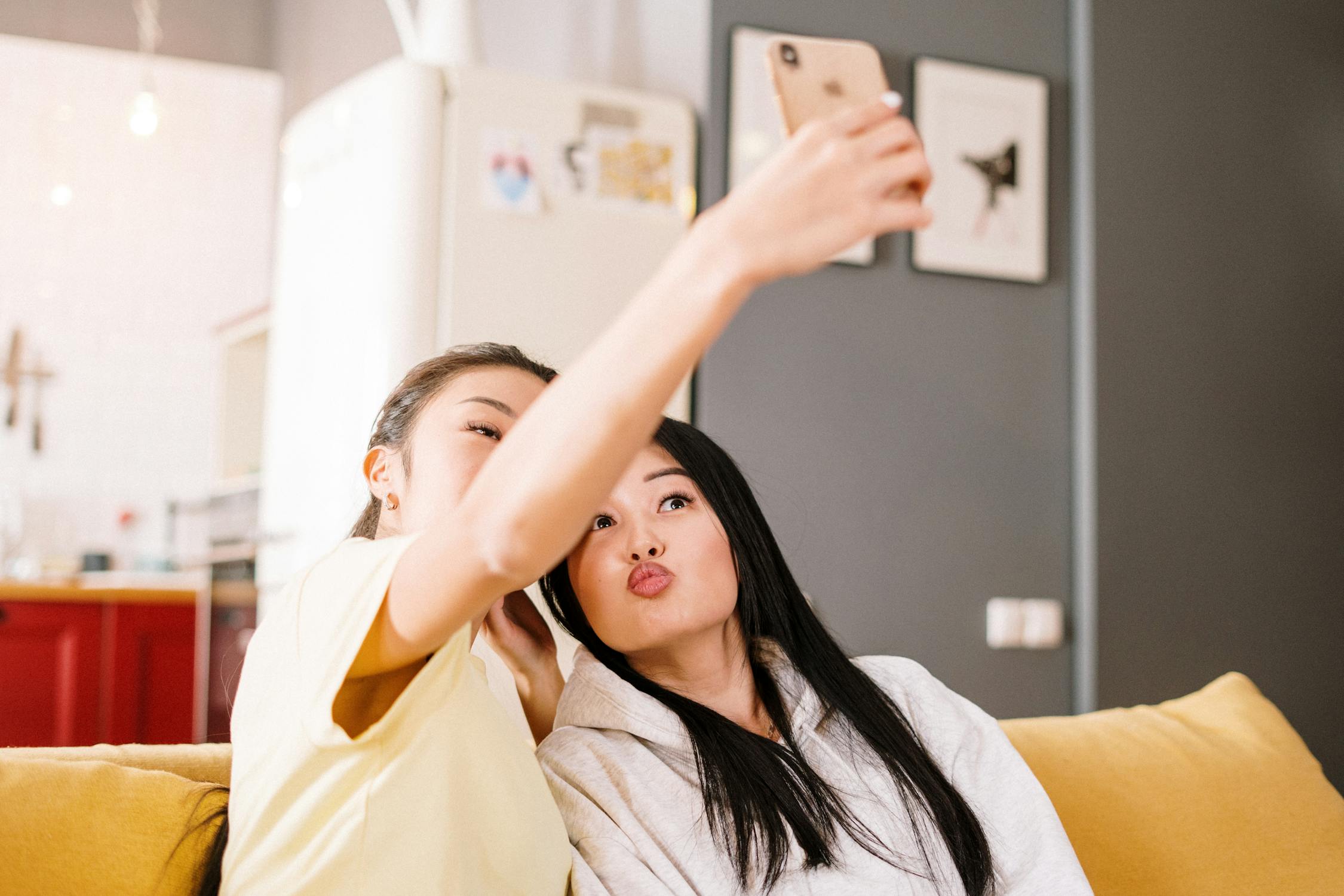Two decades ago, people would have shrugged at the idea of taking a selfie, and why not? It meant awkwardly grasping a Polaroid camera at arm’s length. But, these days, it’s convenient to take a selfie, all thanks to smartphones. The quality of these devices is impeccable, providing better ways to click selfies.
There is nothing wrong with taking selfies here and there. But this simple act becomes a problem when you start snapping dozens of them just to find that “perfect shot.” The obsession with getting that flawless shot can have a bigger impact than many realize. Teens, in particular, are at risk.
That said, we’ll dive into how this selfie culture can affect teens and what you can do to help them.
The Impact of Selfie Obsession on Teens
Here, we’ll explore the dangers of selfie obsession on teenagers:
1. The Rise of Selfie Dysmorphia
Social media filters are fun. You can look like a fairy princess, get a smaller nose, clearer skin, plumper nose, and even taller cheekbones, thanks to high-tech editing apps. But these filters can mess with teens’ heads.
When teens stare back at their filtered appearance, they start believing that these edited versions of themselves are how they should look in real life.
Filters of apps like Snapchat have messed with people’s perceptions so much that it has now got a name—selfie dysmorphia. Teens are seeking surgery to look like their favorite filters.
A plastic surgeon in New York, Mathew Schulman, says that patients walk in with selfies edited using Snapchat filters as references for their desired look. They want to look like filtered versions of themselves.
The disconnect between their digital selves and reality fuels deep insecurities in teens. The constant comparison to these filtered versions can take a heavy toll on mental health, making teens feel they’re never quite good enough.
2. Preoccupation With Validation
The number of “likes” you get on your pictures might not matter to you. But it’s a great deal for teens.
Cheska Garcia, a Filipino actress and model, says teens seek validation through likes and comments on social media.
Their brain’s reward system is activated when their posts are met with likes and positive comments. The flood of positive notifications makes them feel good, which often leads the brain to want more.
But what happens when the likes don’t roll in as expected? Fewer likes can make teens depressed and anxious. Receiving likes lesser than expected also harms the self-esteem of adolescents, reveals a 2022 NIH publication.
Dozens of states are suing Meta—the parent company of Facebook and Instagram—for fueling mental health crises in adolescents.
The Facebook and Instagram lawsuits allege that “likes” and social comparison features are harming young users. According to New York Attorney General Letitia James, Meta has intentionally designed its platforms with features that addict young people to it while lowering their self-esteem.
Lawsuits across 41 states, TruLaw explains, argue that Meta is aware of the risks, yet it continues to offer features that hook children and adolescents into addictive behaviors.
3. Social Isolation
Excessive selfie-taking and posting can lead to social isolation. That’s what an article published in ScienceDirect says.
When teens get obsessed with taking selfies, they become more and more self-centered. Their focus on curating the perfect selfie diverts them from face-to-face interactions. They get so absorbed in taking and sharing selfies that hanging out in person feels less appealing or intimidating.
Skipping social events or family gatherings and avoiding hanging out with friends doesn’t do any good. This can lead to a lack of meaningful connections and feelings of loneliness.
3 Ways You Can Help Your Teen Develop Healthy Habits Around Selfies
Here are several ways you can help your teen develop healthy habits around selfies:
-
Talk to your teen about the difference between filtered perfection and reality. They are less likely to compare themselves to others when they understand that most images are carefully edited
-
Teach them that their value isn’t tied to likes, comments, or how “perfect” their selfies look. Encourage your teen to post content that showcases their talents, hobbies, or acts of kindness
-
Limit their screen time. That will allow them to engage in offline activities that boost self-esteem
Your teen’s habit of taking selfies might appear harmless, but they can have a negative impact on them.
Obsession with selfies isn’t just about taking pictures. It’s rather about the deeper issues of self-worth and mental health, as well as how teens perceive themselves in a digital world. In favor of perfecting their online presence, teens may experience anxiety, develop a distorted self-image, and even withdraw from real-life social interactions.
However, talking about the difference between reality and the curated images they see online can help your teen enjoy the fun side of selfies without falling into unhealthy habits. Don’t forget to remind them that real confidence comes from being comfortable in your own skin.











